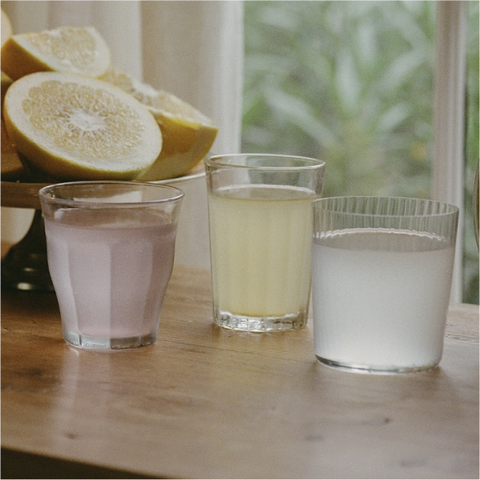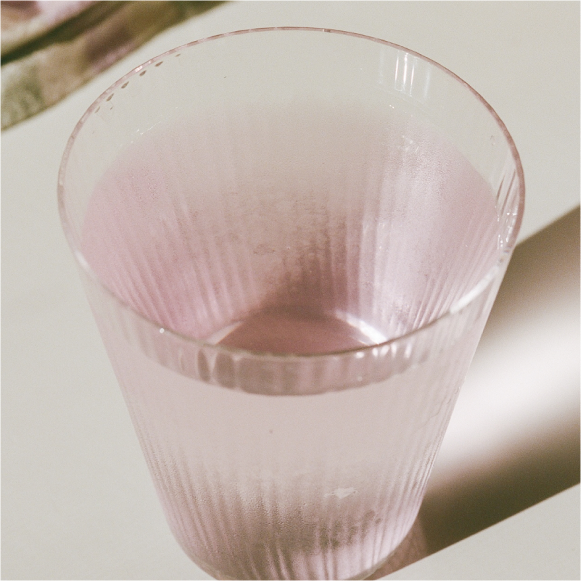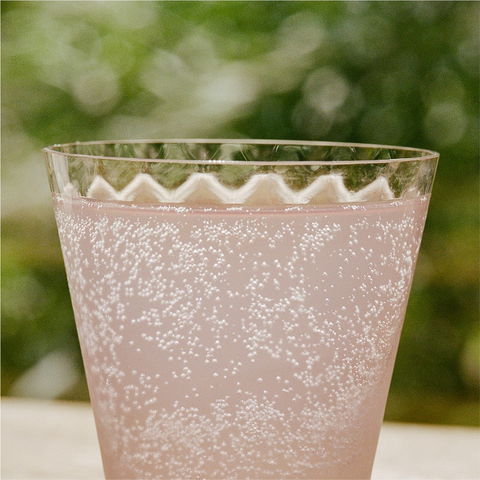Mushrooms have gained increasing attention for their plethora of health benefits. Among the vast array of mushroom varieties, two stand out as popular powerhouses, Reishi and Chaga. These fungi have been used for centuries by traditional Chinese medicine herbalists and are often referred to as the "king and queen" of mushrooms because of the profound impact they have on daily health and longevity. While they share certain similarities, these super mushrooms possess unique characteristics that set them apart.
Reishi, known as a nootropic mushroom, offers cognitive support, while Chaga acts as a protective, supporting the immune system.
In this article, we will explore the unique benefits, distinctions, and uses of each mushroom and discuss the main differences between Reishi vs. Chaga, so you can have the confidence and clarity to choose the option for you.
Benefits of Reishi
There are many health benefits of Reishi mushrooms. Known as the “queen of mushrooms,” this reddish-brown, fanned shape fungi flourishes on trees across regions like the United States, Asia, and parts of the Amazon. It is highly regarded for its potent antioxidants that protect against stress and its positive effects on mood, memory, and hormones.
When it comes to Reishi’s multidimensional healing nature, it may help reduce stress-induced brain fog, enhance memory, and support the nervous and digestive systems because of its ability to improve adrenal and pituitary function. Because the Reishi mushroom is adaptogenic in nature and helps reduce stress levels, it has the ability to balance stress-modulated hormones, support reproductive health, and regulate the thyroid.
In addition to its therapeutic properties, Reishi is high in a variety of nutrients — amino acids, vitamins, and essential minerals such as Copper, Iodine, Iron, Selenium, and Zinc.
Benefits of Chaga
Chaga, revered as the "king of mushrooms," offers a variety of potential health benefits. Traditional Chinese Medicine herbalists and Indigenous people in North America have long utilized Chaga for its immune-supporting properties. It is known to balance energy levels, alleviate fatigue, and enhance mental sharpness.
Chaga's impressive antioxidant content and immune-modulating effects make this mushroom capable of supporting immune function by promoting the production of white blood cells and protecting cells from oxidative stress.
The Chaga mushroom also possesses potent anti-inflammatory and antioxidative benefits. Studies have demonstrated its ability to reduce inflammation, making it potentially beneficial for inflammation-related conditions. A separate study found Chaga polysaccharide consumption increased endurance with more glycogen being pushed into muscles and lowered lactic acid levels in the bloodstream, meaning this mushroom shows immense promise in supporting endurance while reducing exercise-related fatigue.
Key Differences Between Chaga and Reishi Mushrooms
Reishi and Chaga have distinct characteristics that set them apart.
Reishi is known as a nootropic mushroom that supports cognitive function. It promotes mood enhancement, concentration, and overall stress management, helping to relax the body. When using Reishi mushroom powder, it has a strong, botanical aroma and a slightly bitter taste.
On the other hand, Chaga is considered a protective mushroom that primarily supports energy and immunity. It can increase stamina and reduce fatigue, making it an ideal choice for those seeking to boost energy and vitality. Chaga powder has a mild and palatable earthy flavor.
Which Mushroom Should You Take?
Reishi and Chaga each have their own unique strengths, making one more suitable than the other depending on your current health needs and broader health goals. Consider your specific health requirements to determine which mushroom best suits you.
When to Take Reishi
-
Balance mood
If you're experiencing low mood, consider taking Reishi. This particular mushroom is rich in nutrients and adaptogens, supports the nervous system, brightens mood, and promotes a sense of overall well-being. You can take it in a variety of different ways like taking a capsule or consuming a Reishi tea recipe. -
Relieve stress
If you're experiencing chronic stress or feeling overwhelmed, adding organic Reishi mushroom into your routine can help.Reishi is known for its ability to balance stress-modulating hormones and its antioxidative properties that protect against the effects of oxidative stress,
allowing you to relax and experience calm.
-
Aid concentration
If you're struggling to focus or experiencing brain fog, take Reishi for its mental benefits. Reishi's nootropic nature supports healthy cognitive function, helping you think clearly and enhancing your ability to concentrate.
When to Take Chaga
-
Support immunity
If you're seeking to support your immune function, take Chaga. This functional mushroom is renowned for supporting the immune system, making it a great choice for those dealing with seasonal allergies, feeling under the weather, or seeking everyday support for protective benefits. -
Reduce fatigue
If you find yourself constantly tired or easily fatigued, Chaga can help. This supermushroom’s antioxidant properties can aid in the recovery from stress and help reduce feelings of fatigue, promoting a sense of vitality and increased energy levels. -
Balance energy
If you're experiencing low energy and seeking a sustainable and safe pick-me-up, turn to Chaga. Chaga enables your body to utilize energy efficiently, allowing you to move through your day with endurance. Because chaga has the potential to help balance blood sugar levels, it can support a stable and consistent energy supply.
Can You Take Chaga and Reishi Together?
Yes, Reishi and Chaga are safe to take together. In fact, consuming these mushrooms in combination can have synergistic effects that further support your health goals. Their unique benefits work together to provide antioxidants and physiological balance, enhancing the overall impact on your well-being.
While taking Chaga and Reishi together is generally safe, it's always a good idea to consult with a healthcare professional, especially if you have any specific health conditions or are taking medications. They can provide personalized advice based on your individual needs and help ensure the appropriate dosage and usage for your situation.
Remember to follow the recommended usage guidelines for each functional mushroom supplement and choose high-quality sources. Consistency in consumption and adherence to recommended doses will maximize the potential benefits of incorporating these powerful mushrooms into your daily routine.
Takeaways
Reishi and Chaga mushrooms offer a wide range of potential health benefits. Reishi supports cognitive function, mood balance, and overall well-being, while Chaga enhances energy, immunity, and reduces fatigue. Whether you choose Reishi or Chaga, or both, incorporating these powerful super mushrooms into your routine can be an immensely helpful addition to your health journey. If you’re ready to take advantage of these mighty mushrooms, shop our Reishi mushroom powder and Chaga mushroom powder today. Be sure to consult with a healthcare professional if needed, and enjoy the natural benefits that Reishi and Chaga have to offer.

Sources
- National Library of Medicine, Ganoderma lucidum (Lingzhi or Reishi) https://www.ncbi.nlm.nih.gov/books/NBK92757/
- National Library of Medicine, Ganoderma lucidum ("Lingzhi"), a Chinese medicinal mushroom: biomarker responses in a controlled human supplementation study https://pubmed.ncbi.nlm.nih.gov/14756912/
- National Library of Medicine, Probing Lingzhi or Reishi medicinal mushroom Ganoderma lucidum (higher Basidiomycetes): a bitter mushroom with amazing health benefits https://pubmed.ncbi.nlm.nih.gov/23557365/
- National Library of Medicine, An update on plant derived anti-androgens https://pubmed.ncbi.nlm.nih.gov/23843810/
- National Library of Medicine, Study of potential cardioprotective effects of Ganoderma lucidum (Lingzhi): results of a controlled human intervention trial https://pubmed.ncbi.nlm.nih.gov/21801467/
- National Library of Medicine, The Anti-Inflammatory Properties of Chaga Extracts Obtained by Different Extraction Methods against LPS-Induced RAW 264.7 https://www.ncbi.nlm.nih.gov/pmc/articles/PMC9268247/
- Science Direct, Inonotus obliquus – from folk medicine to clinical use https://www.sciencedirect.com/science/article/pii/S2225411020309809?via%3Dihub
- National Library of Medicine, Antioxidant effect of Inonotus obliquus https://pubmed.ncbi.nlm.nih.gov/15588653/
- National Library of Medicine, Immunomodulatory Activity of the Water Extract from Medicinal Mushroom Inonotus obliquus https://www.ncbi.nlm.nih.gov/pmc/articles/PMC3774877/
- National Library of Medicine, Beta Glucan: Health Benefits in Obesity and Metabolic Syndrome https://www.ncbi.nlm.nih.gov/pmc/articles/PMC3236515

-(1).png?v=1691657766177)
.png?v=1691657745995)













